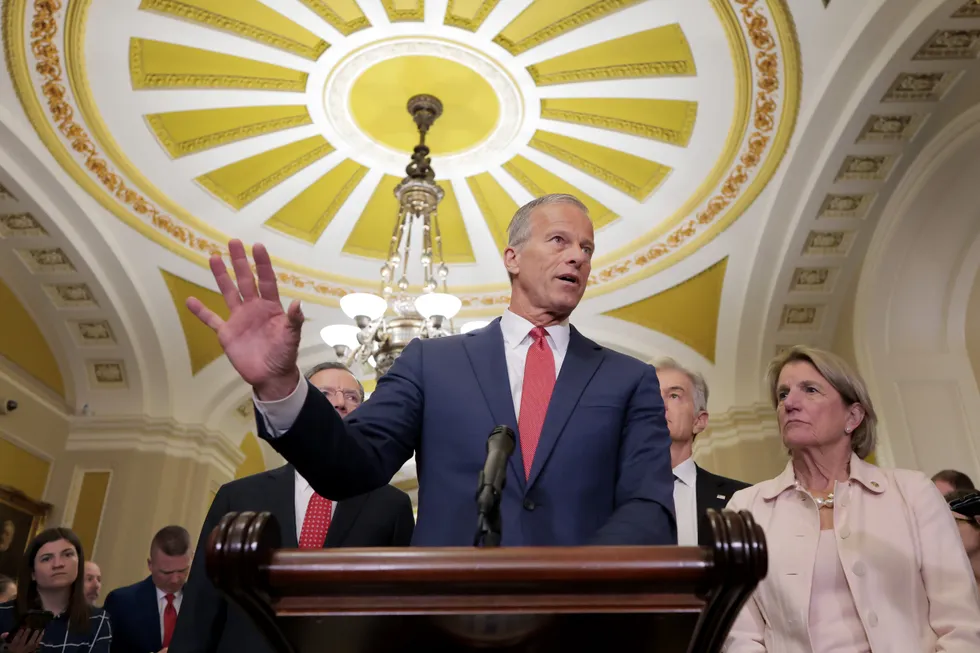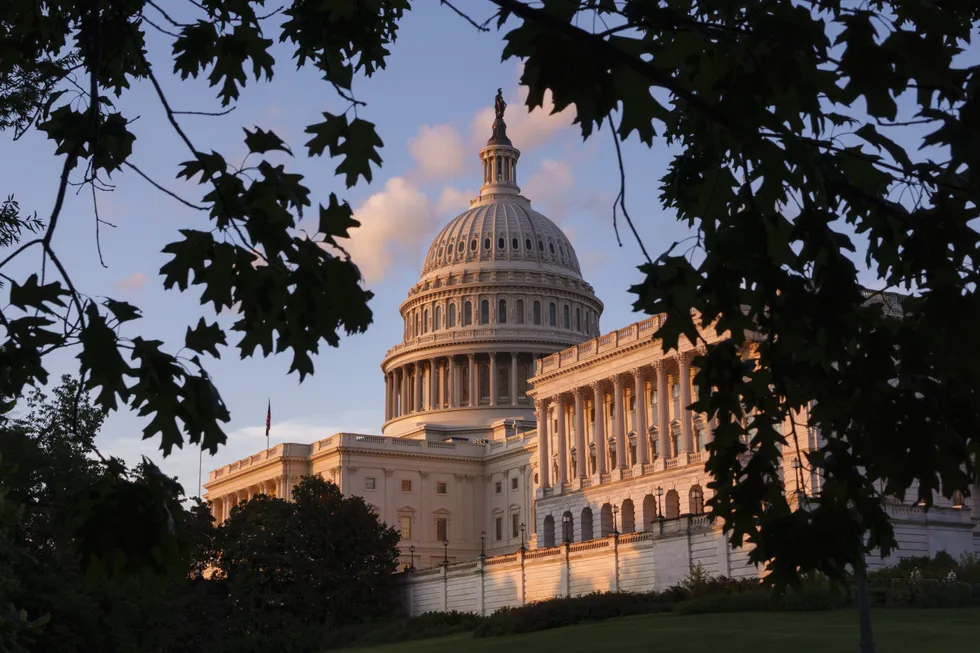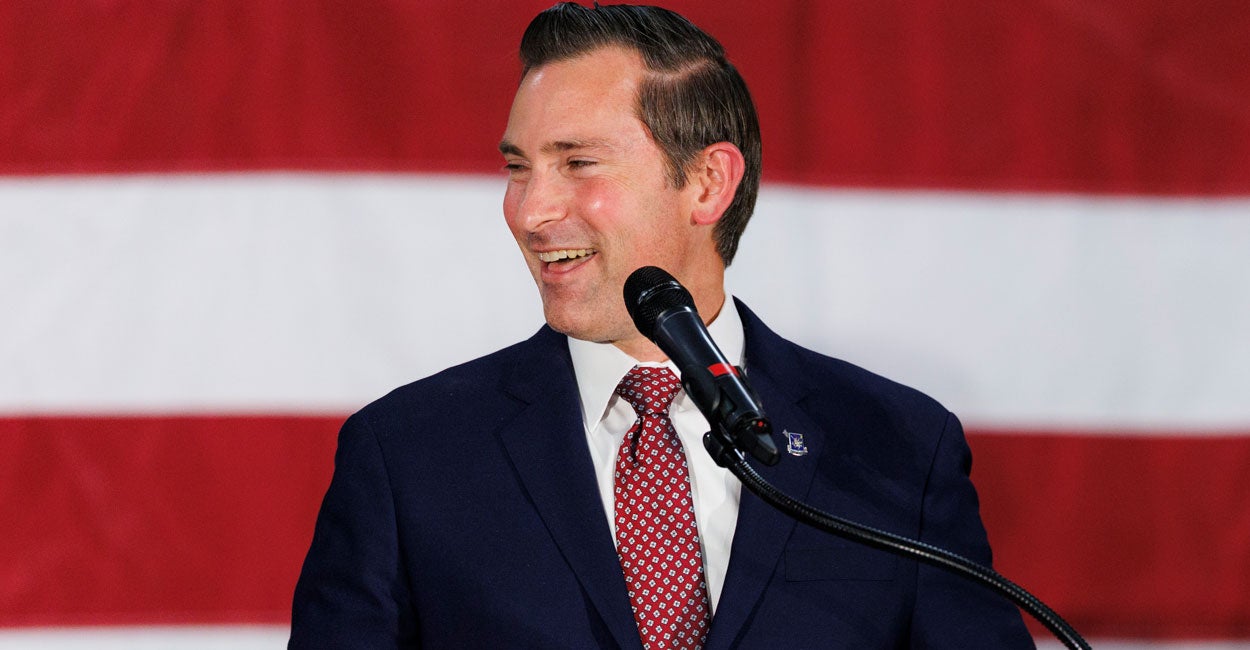Senate parliamentarian rules against key provisions from Trump's 'big, beautiful bill'


The Senate parliamentarian, Elizabeth MacDonough, ruled that several key provisions in the "big, beautiful bill" violate the Byrd Rule, potentially setting the stage for the provisions to be removed altogether.
In order to avoid a filibuster and pass the bill under a simple majority, the legislation needs to be compliant with the Byrd Rule, which prevents "extraneous" provisions from being included in reconciliation. The "extraneous" provisions MacDonough ruled against include key climate and financial provisions.
Although these rulings can be contentious, they are not set in stone.
One provision the parliamentarian ruled against came from the Senate Banking Committee's reconciliation text, which would have cut $6.4 billion in funding from the Consumer Financial Protection Bureau. She also ruled against cutting $1.4 billion by reducing the wages for Federal Reserve staff, cutting $293 million from the Office of Financial Research, and cutting $771 million by abolishing the Public Company Accounting Oversight Board.
MacDonough also ruled against a provision that would repeal green energy subsidies authorized by the Inflation Reduction Act, as well as certain tailpipe emission standards put forth by the Environmental Protection Agency.
RELATED: Republican support wanes as Senate overhauls key provisions in 'big, beautiful bill'
 Photo by Anna Moneymaker/Getty Images
Photo by Anna Moneymaker/Getty Images
Although these rulings can be contentious, they are not set in stone. James Wallner, vice president of policy at the Foundation for American Innovation, told Blaze News that the parliamentarian's rulings are based on precedent and provide an advisory role subject to the chair.
"There's how it works on paper, and then how it works in practice," Wallner said. "The parliamentarian is just a staffer. So we have a parliamentarian because you have all these different procedural authorities and Senate rules. The Senate rules, though, are very vague, and they are many pages long."
"So you have all these rules, but oftentimes what happens is the rule isn't very explicit, and there are ambiguities," Wallner added. "So when there are ambiguities, the parliamentarian will advise the Senate. At least in theory."
RELATED: SALT Republicans left seething after Senate makes major changes to the 'big, beautiful bill'
 Photo by Kevin Carter/Getty Images
Photo by Kevin Carter/Getty Images
Wallner said the parliamentarian works alongside both majority and minority committee staff to identify provisions that violate the Byrd Rule. Once the parliamentarian issues a ruling, a senator has to raise a point of order on the floor about the Byrd violations. The parliamentarian then advises the chair, who ultimately makes the final decision as to whether the provision in question is a violation.
Although MacDonough ultimately serves in an advisory capacity, Wallner told Blaze News that senators often like to point the finger at the parliamentarian.
"Senators talk about her as if she's the only one who decides," Wallner said. "But it's a very convenient way for them to kind of pass the buck and act like they're not in charge. The parliamentarian has no power to actually issue it authoritatively."
"It can be adversarial, but it's through that adversarial process that you really get a robust discussion of these provisions," Wallner added.
Like Blaze News? Bypass the censors, sign up for our newsletters, and get stories like this direct to your inbox. Sign up here!
Originally Published at Daily Wire, Daily Signal, or The Blaze
What's Your Reaction?
 Like
0
Like
0
 Dislike
0
Dislike
0
 Love
0
Love
0
 Funny
0
Funny
0
 Angry
0
Angry
0
 Sad
0
Sad
0
 Wow
0
Wow
0











































































